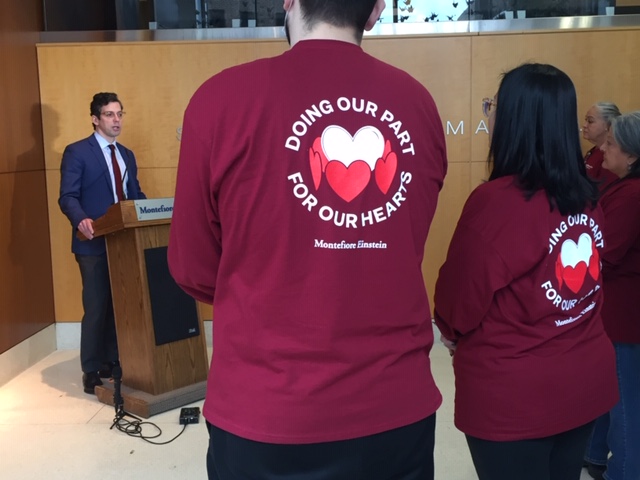
Photo by Síle Moloney
It’s February once again and with it, the focus returns to all matters of the heart. We’ll learn about heart health of kids, because little hearts grow up, and the health and habits of today’s young people pave the road for heart health, or heart disease, in adulthood.
Research by Harvard Medical School shows that childhood and adolescent habits really matter. Many of the biggest risks factors for adult heart disease start in the early years: obesity, poor diet, high blood pressure, high cholesterol, limited movement, poor sleep, and smoking/exposure to secondhand smoke.
Heart disease can be caused by conditions that are present from birth. However, it can also be prevented by reducing or avoiding these risk factors. Sadly, the risks factors of obesity and high blood pressure in young people are higher now than ever before. The Centers for Disease Control (CDC) reports that one out of every five children in America are obese and one in 25 people aged 12 to 19 have high blood pressure.
Adults can do many things to prevent heart disease, like modeling healthy behaviors that will improve your health and inspire your loved ones (and young ones!) to do the same. Follow these “protective” practices: follow a healthy diet, don’t smoke, get enough sleep, and stay active!
Create Healthy Eating Patterns
- Protect your heart by limiting sodium, saturated fats, and added sugars.
- Offer young people fruits and vegetables, whole grains, lean protein, and low-fat dairy.
- Avoid over feeding – as a guide for portion size, use the plate method: https://www.nyc.gov/assets/doh/downloads/pdf/csi/obesity-plate-planner-13.pdf.
- Avoid junk and fast foods.
- Limit sugary drinks. Instead of juices and sodas, serve water, fruit or vegetable infused water, flavored seltzer, or low-fat milk. If you do serve juice, follow the American Academy of Pediatrics recommendations:
-
- 1 year or younger: no juice at all
- 1 to 3 years: Only 4 ounces of juice a day or less
- 4 to 6 years: Only 6 ounces of juice a day or less
- 7 years and older: Only 8 ounces of juice a day or less
Avoid Tobacco Smoke
Children who smoke, vape, or are exposed to secondhand smoke in the home or car have an increased risk of heart disease when they get older. For information on how to quit, visit https://www.nysmokefree.com/.
Encourage Healthy Sleep Habits
The American Academy of Pediatrics recommends that young people sleep at least 8 to 10 hours per night. Set clear rules about bedtime and limit the use of electronic devices leading up to bedtime.
Encourage Physical Activity
An active child is a healthier child. Kids should get at least 60 minutes of physical activity each day. Physical activity in childhood can lower the risk of heart disease, diabetes, and some kinds of cancer. Encourage your child to be active by scheduling extracurricular activities such as sports, dance, and swimming. Make use of free and low-cost community centers and parks. Have the kids or teens follow age-appropriate exercise videos at home.
Today’s children are tomorrow’s adults. This February, make a commitment to your and their heart health. For more information, visit https://www.montefiore.org/heartmonth and to learn more about free, monthly, educational zoom classes, contact us at healtheducation@montefiore.org.
Nereyda Franco MPH, MCHE, is a senior health educator with the Office of Community and Population Health at Montefiore Health System.
Editor’s Note: Read our latest story on the launch of American Heart Month at Montefiore Medical Center here.




